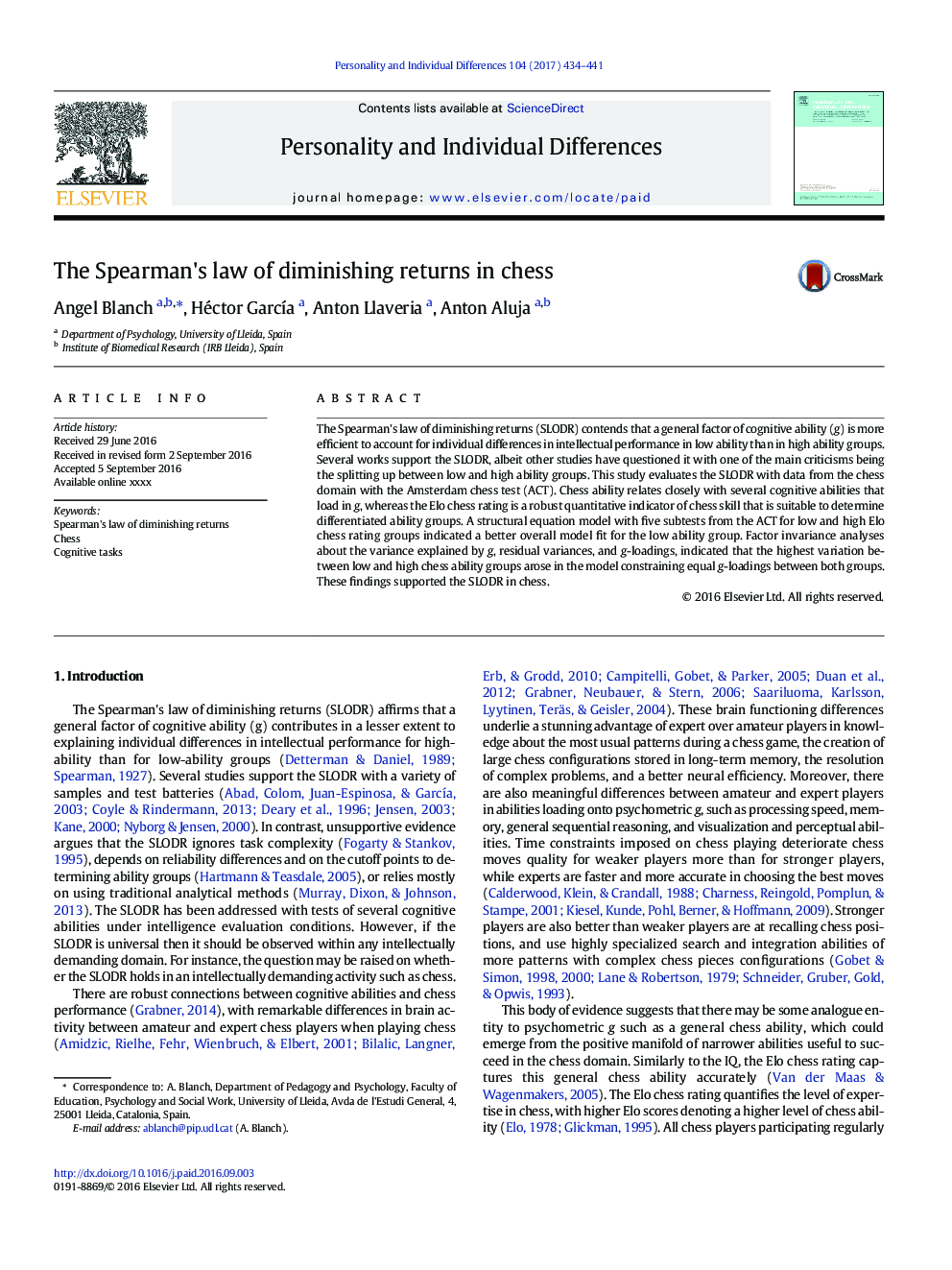| Article ID | Journal | Published Year | Pages | File Type |
|---|---|---|---|---|
| 7249540 | Personality and Individual Differences | 2017 | 8 Pages |
Abstract
The Spearman's law of diminishing returns (SLODR) contends that a general factor of cognitive ability (g) is more efficient to account for individual differences in intellectual performance in low ability than in high ability groups. Several works support the SLODR, albeit other studies have questioned it with one of the main criticisms being the splitting up between low and high ability groups. This study evaluates the SLODR with data from the chess domain with the Amsterdam chess test (ACT). Chess ability relates closely with several cognitive abilities that load in g, whereas the Elo chess rating is a robust quantitative indicator of chess skill that is suitable to determine differentiated ability groups. A structural equation model with five subtests from the ACT for low and high Elo chess rating groups indicated a better overall model fit for the low ability group. Factor invariance analyses about the variance explained by g, residual variances, and g-loadings, indicated that the highest variation between low and high chess ability groups arose in the model constraining equal g-loadings between both groups. These findings supported the SLODR in chess.
Related Topics
Life Sciences
Neuroscience
Behavioral Neuroscience
Authors
Angel Blanch, Héctor GarcÃa, Anton Llaveria, Anton Aluja,
